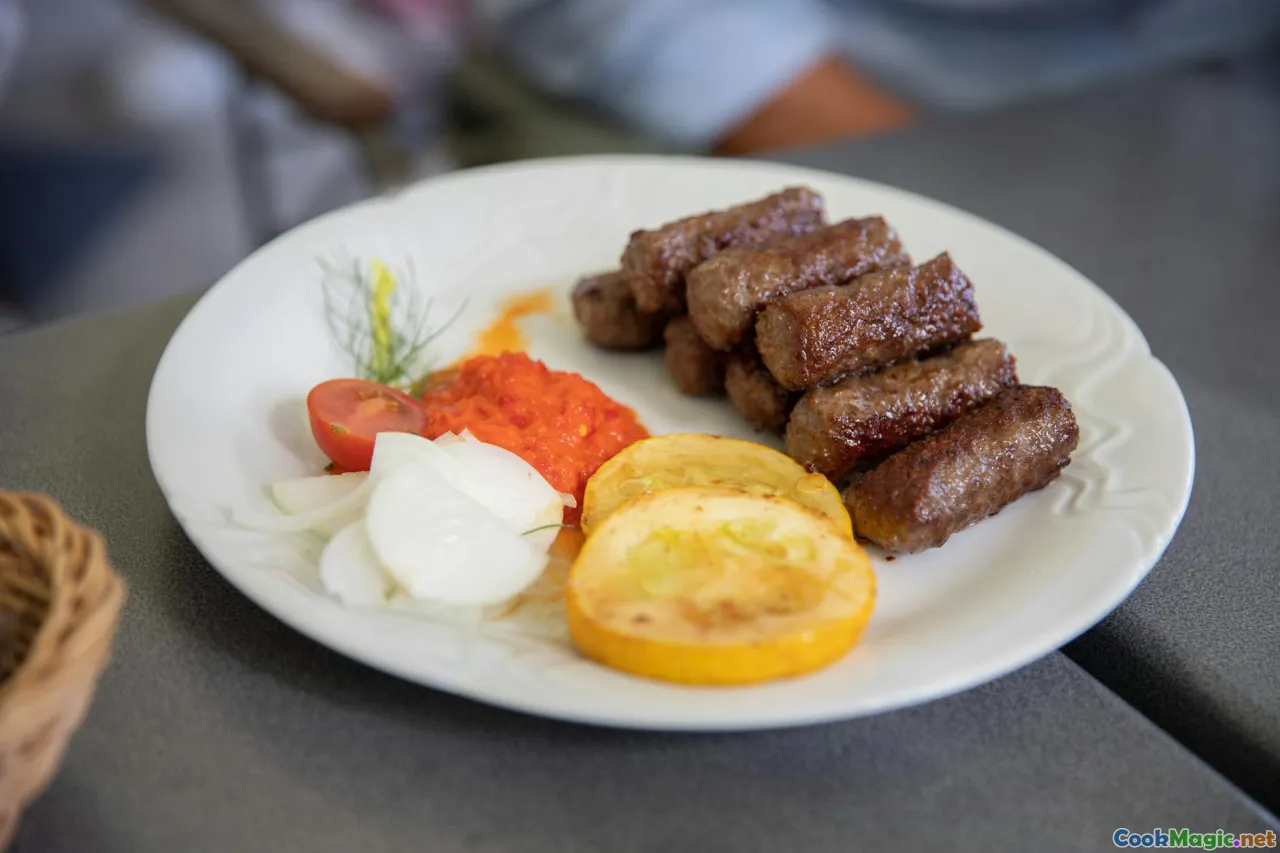How Ottoman Rule Shaped Bosnian Flavors
7 min read Explore how centuries of Ottoman rule infused Bosnian cuisine with rich flavors, vibrant spices, and timeless culinary traditions that endure today. April 20, 2025 05:55
How Ottoman Rule Shaped Bosnian Flavors
Imagine walking through the winding streets of Sarajevo at dawn, the air thick with the aroma of freshly baked burek and spiced coffee. The city’s culinary landscape is a living testament to centuries of cultural interplay, where flavors tell stories of conquest, coexistence, and shared history. Few regions in the world bear such a vivid imprint of an empire as Bosnia does from its Ottoman past. This influence is not merely historical; it’s embedded in the very essence of Bosnian cuisine, shaping tastes, techniques, and culinary identity in ways that continue to delight and surprise.
The Historical Tapestry: Ottoman Rule in Bosnia
Bosnia's encounter with the Ottoman Empire began in the 15th century, a period marked by profound political, social, and cultural transformations. Over four centuries, the Ottomans left an indelible mark on the land, architecture, language, and, most significantly, the food. This era introduced new ingredients, cooking methods, and dishes that gradually wove into the fabric of local traditions.
The Ottomans, known for their sophisticated culinary culture, brought with them a rich palette of spices, herbs, and culinary techniques. The influence was so pervasive that even today, Bosnian cuisine reflects a unique blend of Eastern and Western flavors—a true testament to centuries of shared history.
Culinary Influences: Spices, Techniques, and Ingredients
The Spice Route: A Flavor Revolution
One of the most noticeable Ottoman legacies in Bosnian cooking is the use of spices. Cinnamon, cumin, coriander, and paprika—these aromatic elements are staples in many traditional dishes. They transform simple ingredients into complex, fragrant marvels. The sogan-dolma (stuffed onions) and čevapi (grilled minced meat) often feature a careful balance of spices that enhance their savory profiles.
Bread and Pastries: A Cultural Cornerstone
The Ottomans excelled in baking, and their influence is vividly seen in Bosnian burek and pita. These flaky, golden pastries filled with meat, cheese, or spinach are more than just food; they are communal symbols, often enjoyed during family gatherings or festive occasions. The technique of layering thin phyllo dough, perfected over centuries, results in pastries that are crispy on the outside yet tender inside, with flavors that burst with each bite.
Coffee Culture: A Ritual of Hospitality
No discussion of Ottoman influence is complete without mentioning coffee. The Bosnian kahva is a ritualistic, social brew—dark, intense, and served in small cups, often accompanied by sweet Turkish delight. The preparation involves boiling finely ground coffee with water and sugar, creating a thick, frothy top—a sensory experience that embodies hospitality and friendship.
Vegetables and Legumes: A Heart of the Cuisine
Legumes like chickpeas, lentils, and beans are integral to Bosnian dishes, often simmered slowly with spices to create hearty stews such as begova čorba (begova soup). These dishes reflect the Ottoman love for slow-cooked, flavorful meals that nourish both body and soul.
Architectural and Cultural Echoes in Food
Beyond ingredients and techniques, Ottoman rule influenced Bosnian culinary culture through the establishment of mekteps (schools) and hans (caravansaries), which became hubs for trade and exchange. Markets like Sarajevo’s Baščaršija still buzz with vendors selling spices, dried fruits, and traditional sweets, echoing the vibrant trade routes of the empire.
The social aspect of Bosnian dining—shared meals, communal dishes, and hospitality—is a direct reflection of Ottoman values. Food became a language of community, identity, and resilience.
Personal Reflections: A Journey Through Flavors
Having traveled through Bosnia and tasted its authentic dishes, I am continually struck by the harmony between the old and new. The smoky aroma of ćevapi grilled over open flames, seasoned with a hint of paprika, transports me to a bustling bazaar centuries ago. The delicate layers of burek, freshly baked in a wood-fired oven, evoke memories of Ottoman kitchens where every pastry was a labor of love.
The spices, the cooking techniques, the social rituals—all these elements coalesce into a cuisine that is both deeply rooted in history and vibrantly alive. It’s a reminder that food is more than sustenance; it’s a vessel of cultural memory.
Modern Bosnian Cuisine: A Living Heritage
Today, Bosnian chefs and home cooks continue to celebrate and reinterpret Ottoman influences. Modern burek restaurants serve their pastries with a variety of fillings, from traditional meat to innovative vegetable and cheese blends. Spiced coffees are now accompanied by modern desserts inspired by Turkish delight but infused with local flavors.
This culinary evolution respects tradition while embracing innovation, ensuring that Bosnian flavors remain vibrant and relevant.
Conclusion: A Flavorful Legacy
The rich tapestry of Bosnian cuisine is a living tribute to the centuries of Ottoman rule. From fragrant spices and flaky pastries to the communal joy of sharing a cup of strong coffee, these culinary traditions symbolize resilience, identity, and cultural fusion. As you savor each bite, remember that you are tasting centuries of history—an enduring legacy that continues to shape Bosnian flavors today.
Embark on a culinary journey through Bosnia, and let its flavors tell the story of an empire’s legacy, woven into the very soul of its food.









